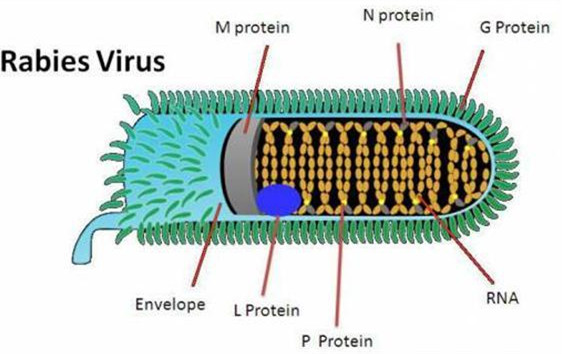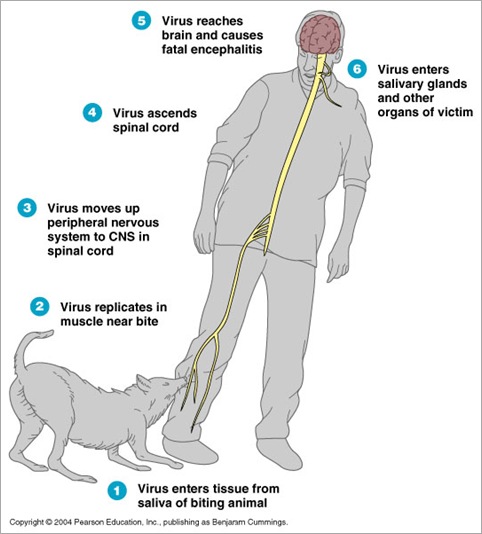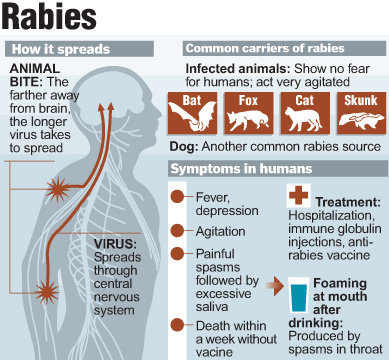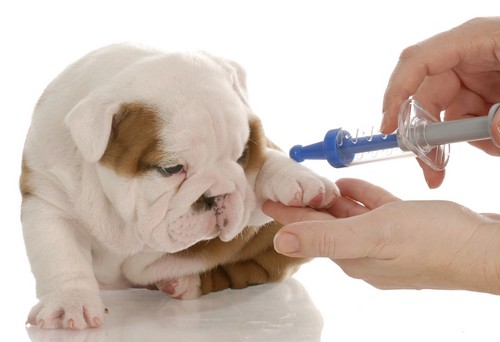|
View: 4391|Reply: 4
|
Kenapa 'Penyakit Anjing Gila' Merebak?
[Copy link]
|
|
|
Oleh : TS LOO
Baru-baru ini, negeri-negeri Utara Malaysia seperti Perlis, Kedah dan Pulau Pinang dikejutkan dengan serangan 'penyakit anjing gila' yang telah menarik perhatian pelbagai pihak.
Mengikut rekod kementerian kesihatan negara kita sejak tahun 1997 tidak pernah berlaku penyakit seumpama ini, justeru jabatan kesihatan negeri segera mengambil langkah yang sewajarnya dalam usaha menangani penyakit yang merbahaya ini.
Antaranya menghapuskan semua anjing liar bagi mengelakkan rabies merebak selepas memperolehi nasihat daripada pakar veterina jabatan kesihatan.

sumber foto : http://certifiedvethomeopath.com/
Sehingga 17 September lalu, terdapat 39 kejadian gigitan anjing pada manusia (25 di Perlis, sembilan di Kedah dan lima di Pulau Pinang yang melibatkan 39 ekor anjing di mana 10 telah disahkan positif Rabies.
Pada 17 September juga, Pulau Pinang telah diisytihar sebagai kawasan jangkitan penyakit anjing gila berikutan berlaku dua kes yang membabitkan seorang kanak-kanak berusia 11 tahun dan seorang dewasa berusia 44 tahun.
Berikut adalah beberapa infomasi yang ingin saya kongsikan agar pembaca Cari infonet mendapat gambaran lebih jelas berhubung apa sebenarnya itu Penyakit Anjing Gila atau Rabies dan langkah pencegahannya.

sumber foto : http://archive.thv11.com/
Penyakit anjing gila atau dikenali sebagai rabies ialah penyakit bawaan virus yang menyebabkan radang otak akut pada haiwan berdarah panas.
Virus penyakit ini menjangkiti sistem saraf pusat dan mangsa yang dijangkiti biasanya akan menemui ajal.

sumber foto : http://lh6.ggpht.com/
Penyakit ini boleh merebak daripada satu spesies kepada satu spesies yang lain melalui gigitan daripada haiwan berjangkit.
Rabies terdapat dalam haiwan di kebanyakan negara di seluruh dunia. Kebanyakan kes jangkitan manusia berlaku di negara-negara membangun.
Agen penyebab: Virus rabies, sejenis rabdovirus dari genus Lyssavirus

sumber foto : http://images.artwanted.com/
Cara jangkitan: Virus rabies terdapat dalam air liur haiwan dan boleh di jangkiti melalui gigitan atau sebarang kejadian yang menembusi kulit seperti jilatan haiwan di tempat luka.
Tempoh pengeraman: 3 hingga 8 minggu, seawal-awalnya 9 hari atau selewat-lewatnya 7 tahun.
Di kawasan yang biasa terdapat jangkitan rabies (kawasan endemik), pelawat berisiko mendapat jangkitan jika berhubung kait dengan haiwan liar atau haiwan peliharaan termasuk anjing dan kucing.
Tanda dan Gejala :
Tanda-tanda awal termasuk rasa bimbang, sakit kepala, demam, lesu dan perubahan deria di sekitar tempat gigitan. Mudah terangsang, berhalusinasi dan berasa takut pada tiup-an angin (aerophobia).

sumber foto : http://www.davisvet.com/
Sesetengahnya berasa gerun atau bencikan air (hidrofobia) disebabkan kekejangan otot kerongkong yang sakit ketika menelan. Pada peringkat seterusnya, pesakit menjadi celaru, mengalami sawan sehingga boleh membawa maut.
Jenis rabies yang dinamakan paralytic rabies (sawan lumpuh) mempunyai tanda dan gejala seperti kehilangan deria, lemah badan, badan berasa sakit, dan lumpuh.
Kesan sampingan: Kesan ringan di tempat suntikan atau seluruh tubuh.
Sebelum berlepas: Individu yang merancang untuk menginap lama atau melawat kawasan yang terdapat banyak kes rabies (hiperendemik) di negara-negara endemik disyorkan mendapat pencegahan rabies
Vaksinasi di gunakan untuk mencegah dari dijangkiti rabies.

sumber foto : http://www.veterinavblansku.cz/
Langkah berjaga-jaga :
Elakkan memegang haiwan liar dan haiwan peliharaan yang sesat terutamanya anjing dan kucing di kawasan endemik.
Jika seseorang digigit oleh haiwan yang mungkin dijangkiti rabies atau berhubung kait dengan seseorang yang disyaki menghidap rabies, segera bersihkan luka dengan sabun dan air.
Selain itu, segera dapatkan rawatan doktor.
sumber : http://www.myhealth.gov.my/ |
|
|
|
|
|
|
|
|
|
|
|
kann.. 2-3 hari lepas dapat email dari SPCA pasal outbreak ni
Kebetulan baru balik dari utara minggu lepas, terus bawa my kitties pegi vaksin.. dah sampai tempoh pun..
-----------------------------------------------------------------
For immediate release – Monday, 21 September 2015
SPCA Selangor Press Release on rabies in northern states
Take Recommended Precautions, Indiscriminate Culling Not The Answer.
Do Not Panic, Says SPCA Selangor.
SELANGOR, 21 Sep 2015 -The rabies outbreak in Penang, Perlis and Kedah has caused anguish, heartbreak and fear to animal-loving Malaysians especially pet owners, animal rescuers and animal shelters. Malaysia has been rabies-free since 1999, and this outbreak caught the DVS and all animal carers unprepared - resulting in a very low stock of rabies vaccines for animals and a frantic desire to cull all stray dogs in Penang.
The Department of Veterinary Services (DVS) under the Ministry of Health holds human and public health as a top priority. In a crisis where an animal virus can spread to humans via bites, it is of vital importance to reduce the incidence of bites and/or to eliminate the source of infection. The Animal Act 1953 and the yet-to-be gazetted Animal Welfare Act 2015 gives the DVS unlimited powers to contain such an outbreak.
While the DVS has done an admirable job in containing rabies in these three states by enforcing mass dog vaccinations and culling of affected community stray dogs, it’s important to note that all mammals are potential vector carriers. SPCA Selangor understands the significance of such actions, and urges the DVS to exercise the most humane and sustainable method to eliminate this disease. Further afield, as in Selangor and states down South where stray communities are likely to rabies-free, we urge immediate blanket vaccination of all dogs instead of indiscriminate culling.
Indiscriminate culling widens disease
Dr Natasha Lee is a Malaysian veterinarian working with World Animal Protection (WAP). She was involved in giving veterinary aid for several rabies outbreaks in Asia, and asserts that culling alone will not remove the disease, without a massive vaccination program. “Indiscriminate culling promotes dog movement as other strays will move in to fill the vacuum, since we can’t catch all strays. Granted affected areas may necessitate culling, but mass vaccinations will create herd immunity that will become a wall of immunity and over a given time, rabies will be eliminated. Unfortunately indiscriminate culling has widened the disease,” says Dr Lee. Experts, like the World Health Organization (WHO) and Center for Disease Control and Prevention (CDC), espouse that effective and verifiable control of the disease through national mass dog vaccinations, targeting at least 70% of the dog population will break the cycle of transmission of the virus from dogs to humans. Effective and humane stray animal control, education and public awareness by the government is highly recommended.
Selangor and Kuala Lumpur unaffected, but precautionary measures must be taken immediately
“Penang is 350 km from KL and it is highly unlikely that rabid strays have reached to KL. While SPCA Selangor is not sited in the affected area, we are anxiously awaiting the DVS Protocols and Guidelines for animal shelters. Based on on-going evolution of this outbreak in the northern states, SPCA Selangor will now and again modify our response to ensure human and animal welfare,” says SPCA Selangor Patron, Tan Sri Lee Lam Thye.
SPCA Selangor urges the citizens of Selangor not to panic and instead take preventive, proactive and precautionary measures. “We will be vaccinating all of our animals in residence once vaccines may be procured and our SPCA staff members who come in contact with animals will be receiving theirs this week. We advise all Animal Rescuers and their animal charges be vaccinated against rabies as well. SPCA also hopes to procure additional doses of dog vaccine from our suppliers and provide them at reasonable cost to the public,” says Christine Chin, SPCA Selangor Chairman.
Preventive measures for all pet owners
1. Vaccinate your pets against rabies.
2. Limit mobility of your pets and do not take them to affected states.
3. If you suspect that your pet is sick and is exhibiting early symptoms like fever, lethargy, loss of appetite, change in behavior toward aggression or markedly passive in the last several days, take your pet to the vet immediately.
4. If you have been bitten by a dog, immediately wash the wound for 10 minutes with soap and water and seek immediate medical help.
SPCA will continue to accept animals, with stringent criteria
SPCA Selangor continues to accept animals based on stringent criteria, largely by identifying the geographical source of the animals. They will continue to take in dogs and puppies fostered by volunteers, and those fed and cared for by animal rescuers in the Klang Valley. Their adoption programme will also continue, but adopters will be advised to be much more vigilant and to vaccinate against rabies once the vaccines have been procured by SPCA.
“As the situation is fluid, we will continue to monitor this outbreak and will always ensure that the welfare of our staff and our resident animals will not be compromised. At the same time, we will continue to help the stray population through our spay/neuter clinic (Klinik Kembiri) and to educate and guide the residents of Selangor on dog bite prevention.
- ENDS –
For more information, kindly contact Jacinta Johnson-Chan at [email protected] or 012-2881421
Note To The Editors:
· The Society for the Prevention of Cruelty To Animals, SPCA Selangor, is an NGO which serves Selangor and The Federal Territory.
· SPCA Selangor was established in 1958, with the aim of protecting defenceless animals and alleviating their suffering.
· The SPCA does not receive any government funding, relying entirely on donations from the public to support its causes, services & activities.
· The SPCA New E.R.A. (Education, Rehoming & Action) Centre at Ampang Jaya temporarily homes unwanted animals while seeking new homes for them under the Managed Adoption Program (MAP). The animals are made up of surrendered pets, rescued cruelty case animals and stray or abandoned animals brought in by Good Samaritans.
· The SPCA would like to work closely with the people of Malaysia to elevate the welfare standards for our Malaysian animals – ensuring they responsibly neuter their pets, provide adequate food, space, exercise, care and medical attention, as well as encouraging them to be responsible neighbours.
|
|
|
|
|
|
|
|
|
|
|
|
baguslah awak vaccinate your kitties.
yang banyak prihatin pasal ni dog owners sedangkan rabies ni boleh menyerang kucing juga.
|
|
|
|
|
|
|
|
|
|
|
|
bukan apa.. kekadang orang tak prihatin
hantar kitties ke vet @ hotel 2-3 hari..staff diorang kat sana kan mingle2 walaupun pets tak campur
lagipun dekat kawasan apartment ni pun ada sekawan anjing liar yang berkeliaran
jinak, kalau park kereta kawasan luar memang la akan dikerumuni mereka2
tak de la sampai belai2 tapi biasanya ada jugak tersentuh2 bila diorang over excited sampai nak memanjat orang coz me kekadang ada bawak treats
takut kita pulak tukang sebar rabbies ke kitties 
|
|
|
|
|
|
|
|
|
|
| |
|